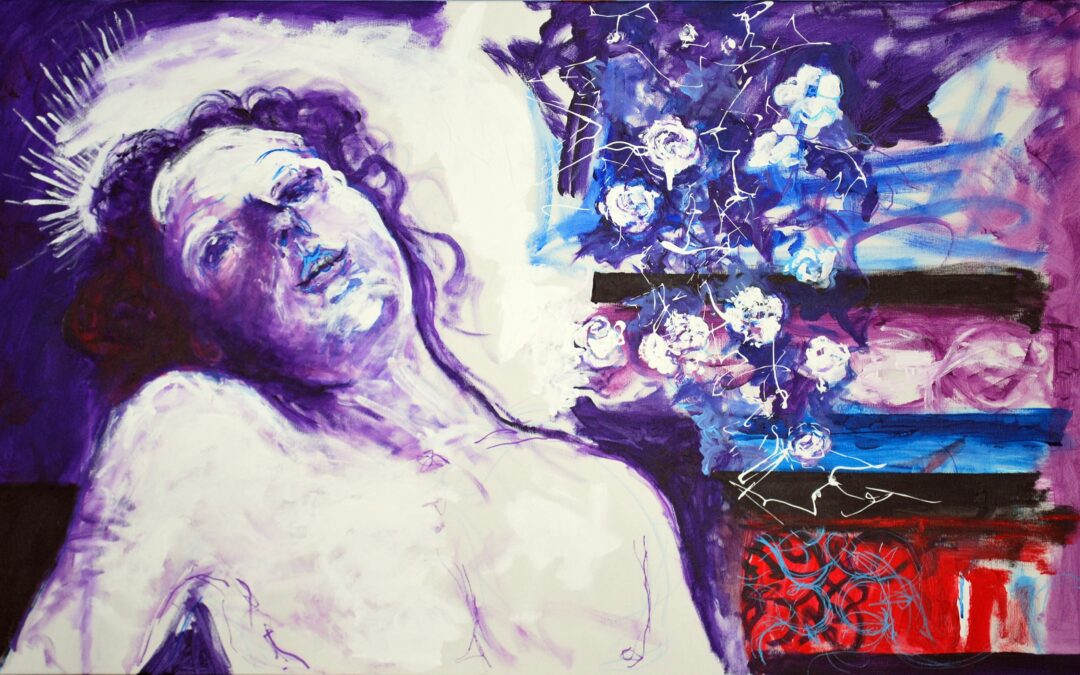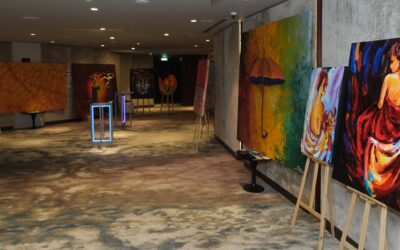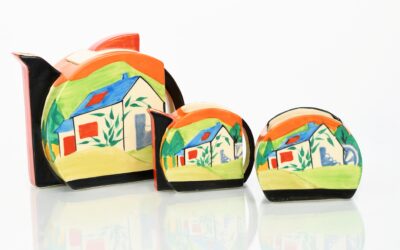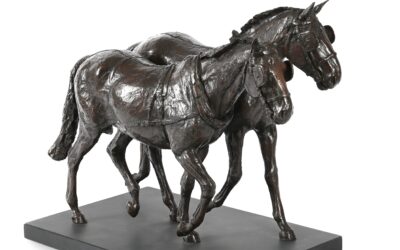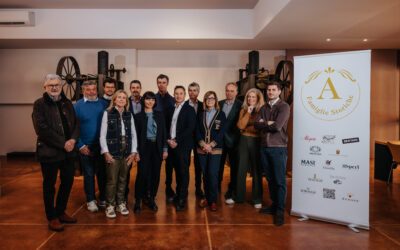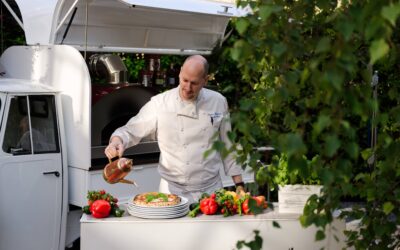Luigi Francischello was born in Zurich in 1964, he’s lived his early ages in Switzerland and Australia, before settling in Italy. He has a Graduation degree in ‘Academy School of Fine Arts’ and been working in the art scene since the early nineties. Luigi has exhibited his works in England, France, Australia, Sweden, Germany and all across Italy. Francischello’s paintings have been included in exhibitions by the A.i.a.p Unesco, in Paris, Tel Aviv and Montecarlo.
He believes that art is an experience and an expression of the soul and gives him the opportunity to deal with thoughts, with signifiers, and the accidentality of creative work. Art is advanced communication, it is related to physical places, people and spaces; interferences of lives that are interlaced, the introspective dimension and sense of belonging related to others and the possibility for technical artistic events to compose in a social and creative experience. The painted figures are fortuitously inspired by great artists from the past: Courbet, Dolci, Botticelli, Von Stuck. It is the experience and observation from the vast archive of images from art history of the past, and the natural desire to converse with the great masters of this “iconography” that leads an artist ttrhough a journey through memory and history.
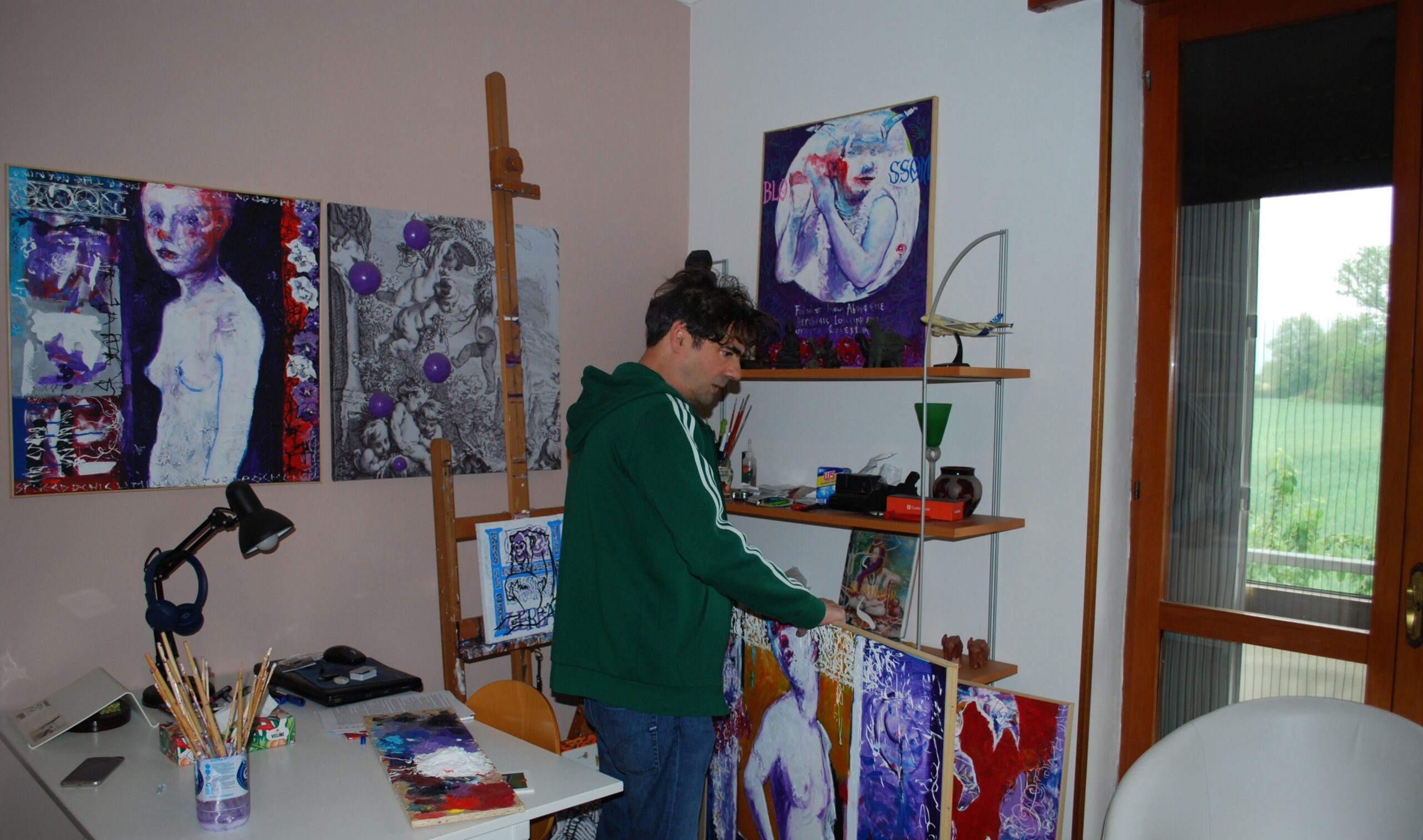
What’s your artistic background?
I have a formal education in art: a degree in fine arts and a high school qualification in advertising technology, but mainly I have gained experience through practical application. Additionally, the continuous study of the history of art and being familiar with different art movements and styles provide me with inspiration and influences my own artistic expression. It is a continuous journey of learning and growth allowing me to express my creativity and communicate my ideas through painting.
What’s integral to the work of an artist?
Creativity is undoubtedly one of the most fundamental aspects of my work, it allows me to explore new perspectives, challenge conventions, and push boundaries by experimenting. Technical skill is another important component of my work, allowing me to effectively communicate my ideas and vision with precision and clarity. Expression and communication are also integral to my work it allows me to communicate my unique perspectives on the world around me.
In addition to these core elements, there are other factors such as Inspiration, passion, self-expression, observation, dedication and discipline.
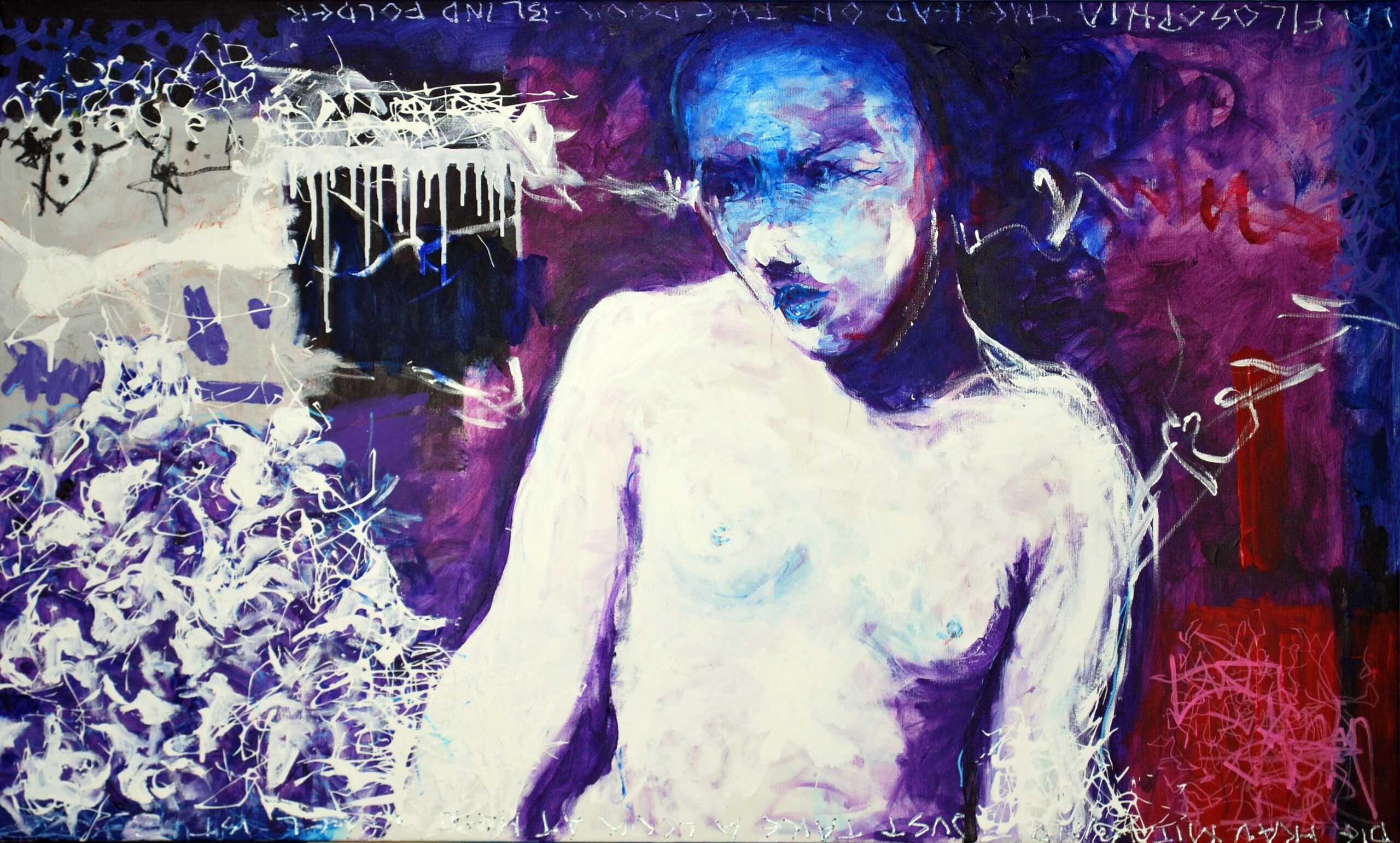
What role does the artist have in society?
One of the most important tasks of artists is to create aesthetic experiences that evoke emotions, stimulate the imagination, and open up new perspectives. Art has the ability to transcend language barriers and communicate on a universal level.
In summary, the role of the artist in society is multifaceted and essential. Artists have the power to create aesthetic experiences, challenge societal norms, preserve cultural heritage, stimulate dialogue, inspire change, and contribute to economic development. They play a vital role in shaping the cultural, social, and political landscape of a community.
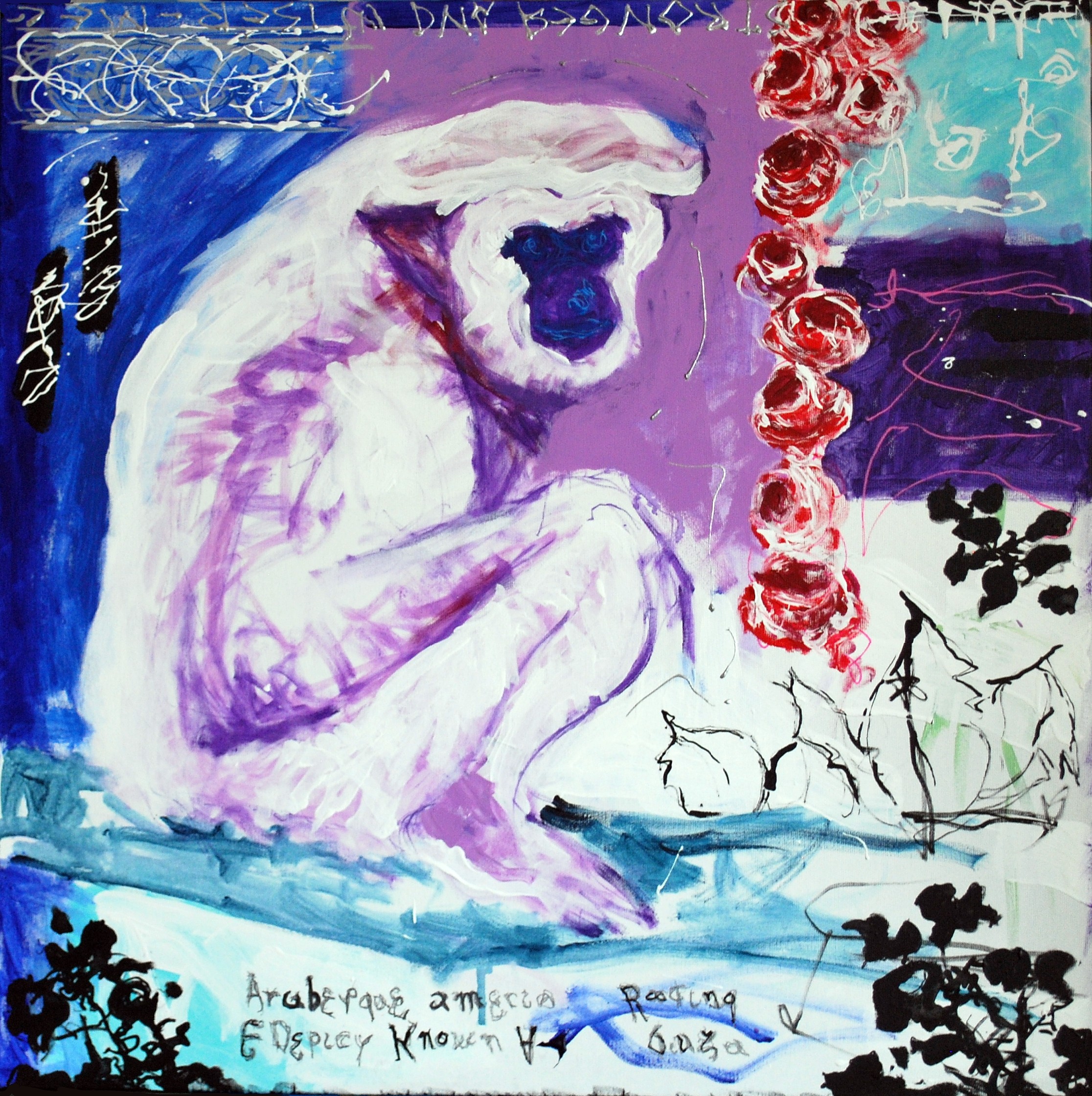
What art do you most identify with?
Art is a diverse and subjective field that encompasses a wide range of creative expressions, including cinema, performing arts, literature, music, and more. But my favorite has always been the visual arts specifically “Painting”. I love expressionism, neo-Expressionism, painters like Picasso or Modigliani. But I also acknowledge the vastness and significance of art in human society, it serves as a means of self-expression, communication, and cultural preservation. Through the visual arts, performing arts, literature, music, and more, artists can convey their ideas, emotions, and perspectives to engage and inspire audiences.
What themes do you pursue?
I explore a wide range of themes in my art work, as art is a reflection of the human experience and can explore various aspects of life, society, and the world. One prominent theme in art is the exploration of identity, questions of self-identity, cultural identity, etc. But currently, I’m working on themes related to spiritual and mental spaces and exploring the unknown, where consciousness and unconsciousness struggle to create substance and color in an idealized space. A ‘non-didactic, non-specified and non-identified’ voyage across the undisclosed: the ambiguity and the paradox become the concept, an unrevealed mystery.
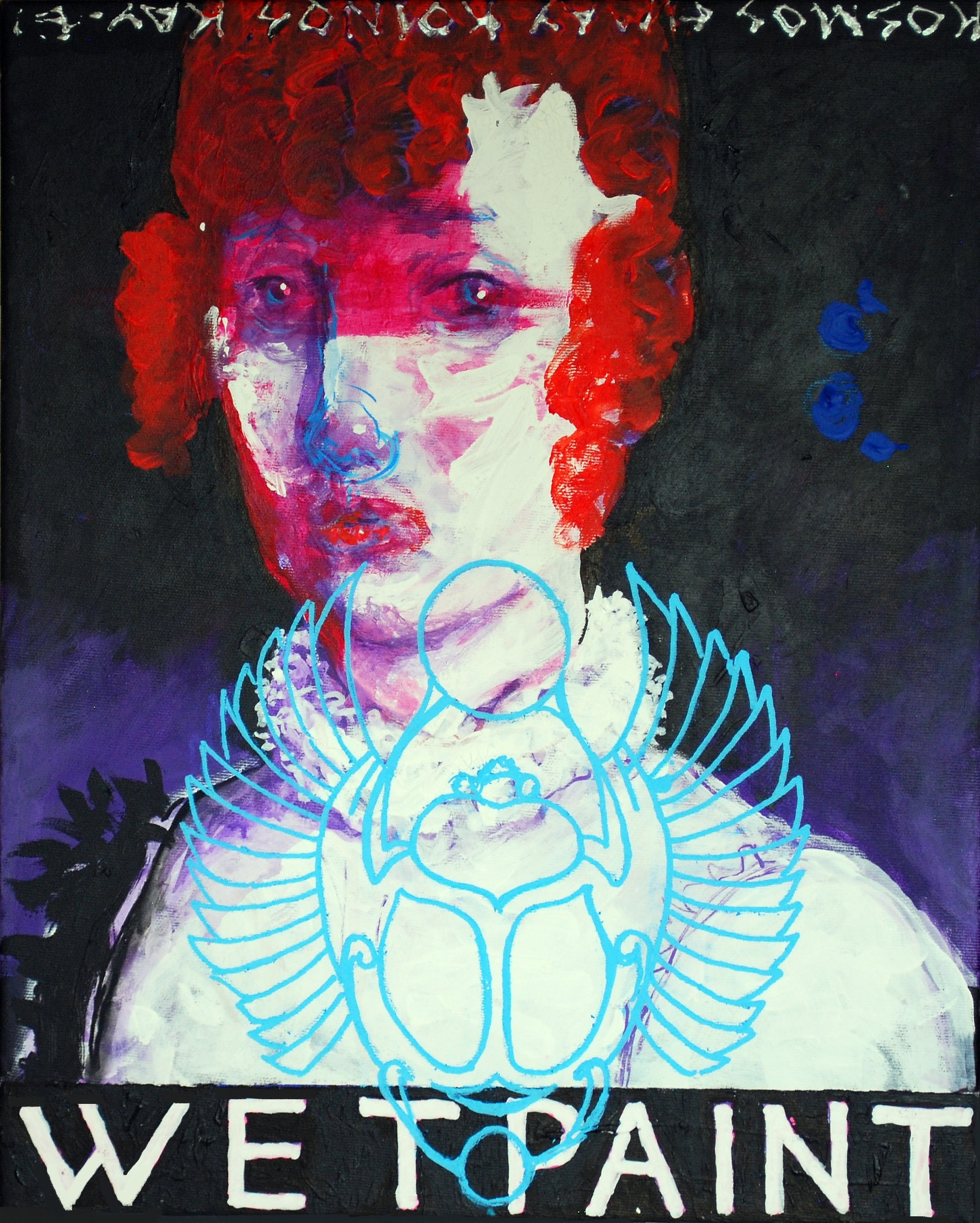
What’s your favourite art work?
I don’t have a favorite work of art that I have done, or maybe I do. I probably know which one is my less favorite. But as far as other artists’ artwork goes, I love the “Camera degli Sposi” (“bridal chamber”), sometimes known as the “Camera picta” (“painted chamber”). It is a room fresco-ed with illusionist paintings by the great master Andrea Mantegna in the Ducal Palace of Mantua in Italy(1465-1474).
Describe a real-life situation that inspired you?
My staying in Vienna for a couple of weeks back in 2003, for its rich history, stunning architecture, and vibrant cultural scene. The MQ MuseumQuartier, the impressive collection of art, and Gustav Klimt’s masterpieces in the Belvedere Palace houses really inspired me.
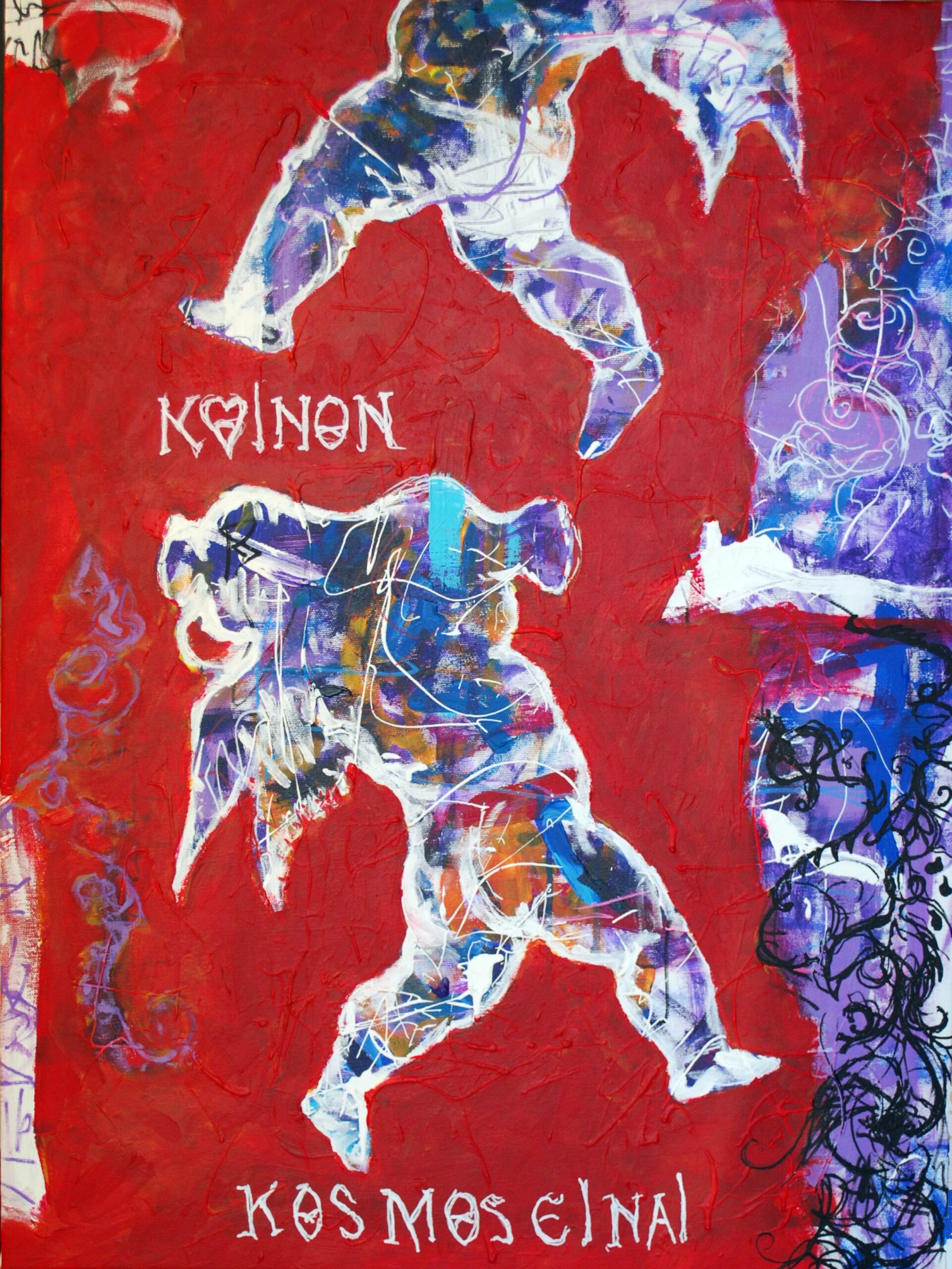
What jobs have you done other than being an artist?
I’ve worked in the past as a freelance graphic designer and as an art teacher. I’ve also worked in publishing, supplying public libraries and professionals.
Why art?
Because it has a specific purpose: the use of energy aimed at a special aspiration: aesthetic and sublime bliss through art.
What is an artistic outlook on life?
An artistic outlook on life refers to a unique perspective or way of thinking that individuals with a strong inclination toward art and creativity adopt in their outlook on life. It involves perceiving the world through a creative lens, being inspired by everyday experiences, and enjoying the beauty and complexity of life. This outlook often manifests itself in various aspects of life, such as personal expression, problem solving, and appreciation of aesthetics
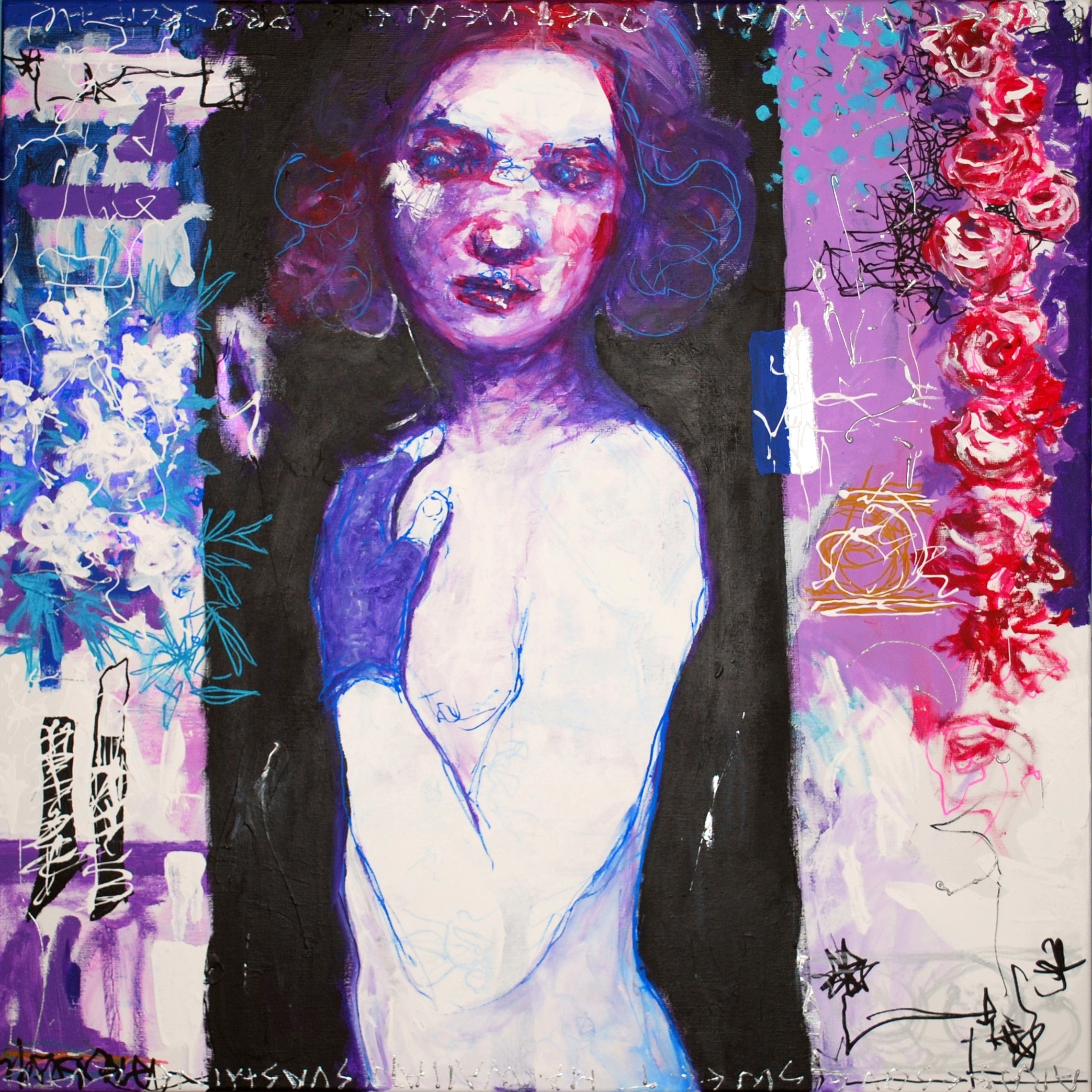
What memorable responses have you had to your work?
My participation in various Venice Biennales (side events) and the permanence of some of my paintings in public and private collections: “Museu da Cidade de Aveiro” collection. Aveiro Portugal. “SPACE” Mazzini. Museum of Contemporary Art., Venice. “Fondazione Oelle”, Aci Castello Catania, Sicily. “Maialido Museum”. Lido, Venice, Italy.
What food, drink, song inspires you?
Well I appreciate all good food and sometimes even junk food, but certainly I prefer “Fish tartare with caviar and avocado” rather than “fish and chips”. Anyway “Music is my muse”, I really dig indie Rock.
Is the artistic life lonely? What do you do to counteract it?
I very much prefer to be alone with myself, it’s good to be with my books and my music; it’s very creative and productive. To counteract that, I live my life to the fullest. I like to travel, meet new people and interact on social networks.
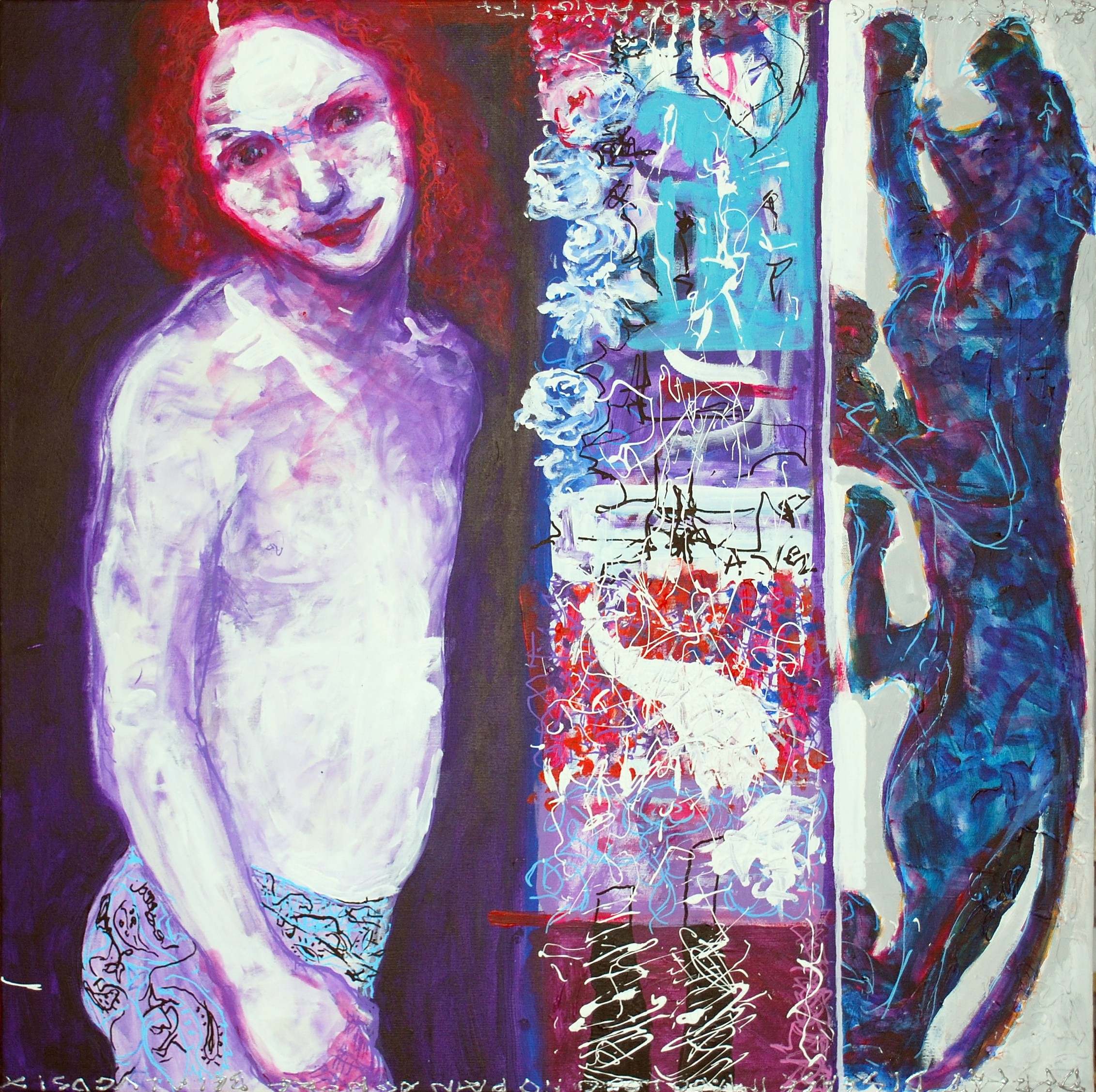
What do you dislike about the art world?
Surely its perceived elitism and exclusivity. The art world is dominated by a small group of wealthy collectors, galleries, and institutions who control what is considered valuable and worthy of attention. This concentration of power can make it difficult for emerging artists to gain recognition. What I also dislike is the commercialization of art, the focus on profit and market value has led to a prioritization of marketable trends and established artists, rather than promoting experimentation and artistic innovation.
What do you dislike about your work?
“Self-doubt”. Well, that’s more about myself, but sometimes it’s reflected in my work.
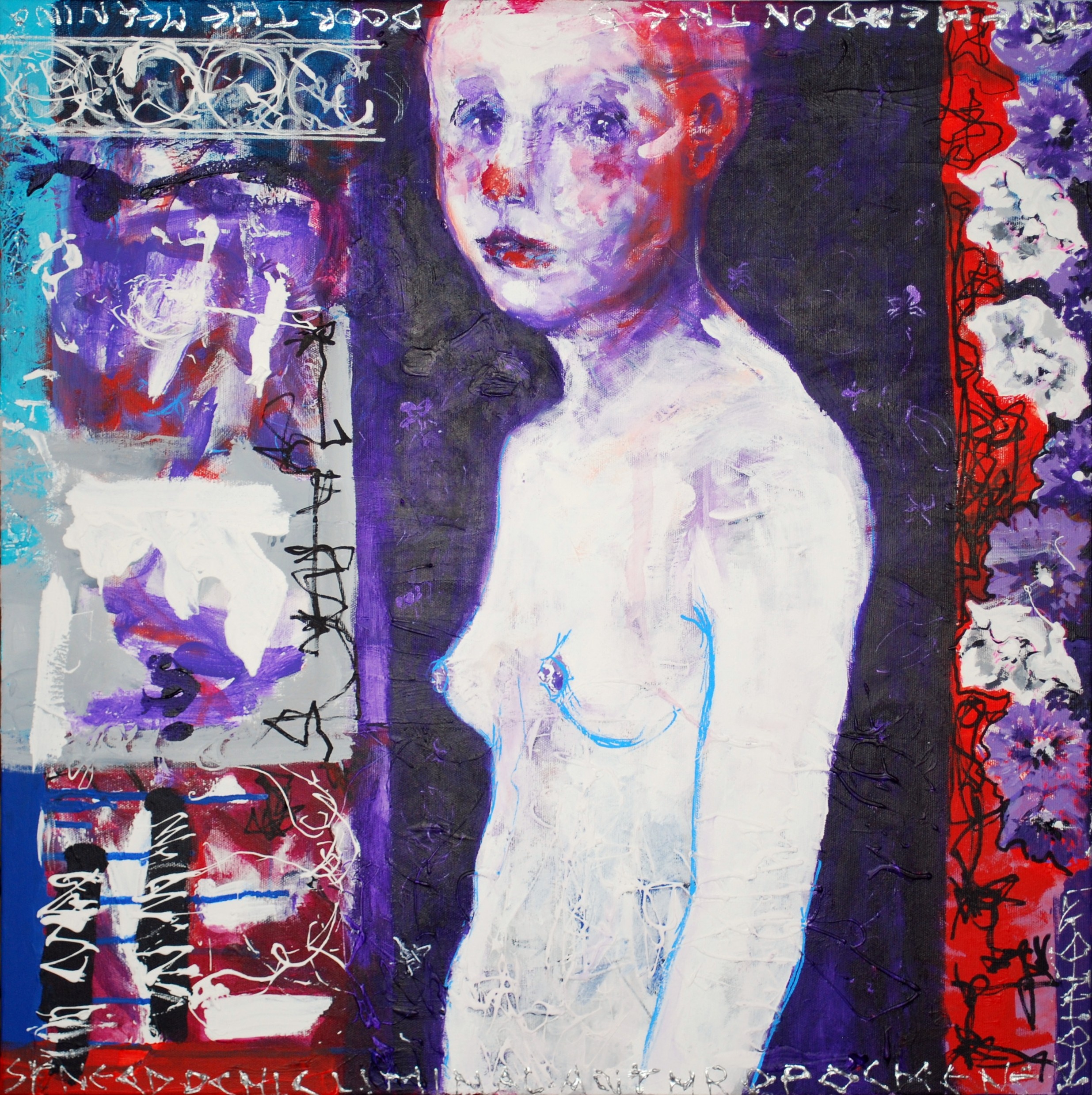
What do you like about your work?
The invention and intervention, the vivacious performance, the psychedelic journey: it derives from the experience and observation of the vast archive of images from art history of the past, and my natural desire to converse with the great masters of the “iconography”, leads me to a trip across memory and history, and life’s experiences is the making of art itself.
Should art be funded?
Art should be funded for several reasons, art plays a crucial role in preserving and promoting cultural heritage. It allows societies to pass down their traditions, values, and stories from one generation to another. Art has the power to inspire and provoke critical thinking. It serves as a medium through which individuals can express their emotions, ideas, and perspectives on various social, political, and environmental issues. By funding art, governments can support the creation of thought-provoking works that contribute to the enrichment of public discourse.
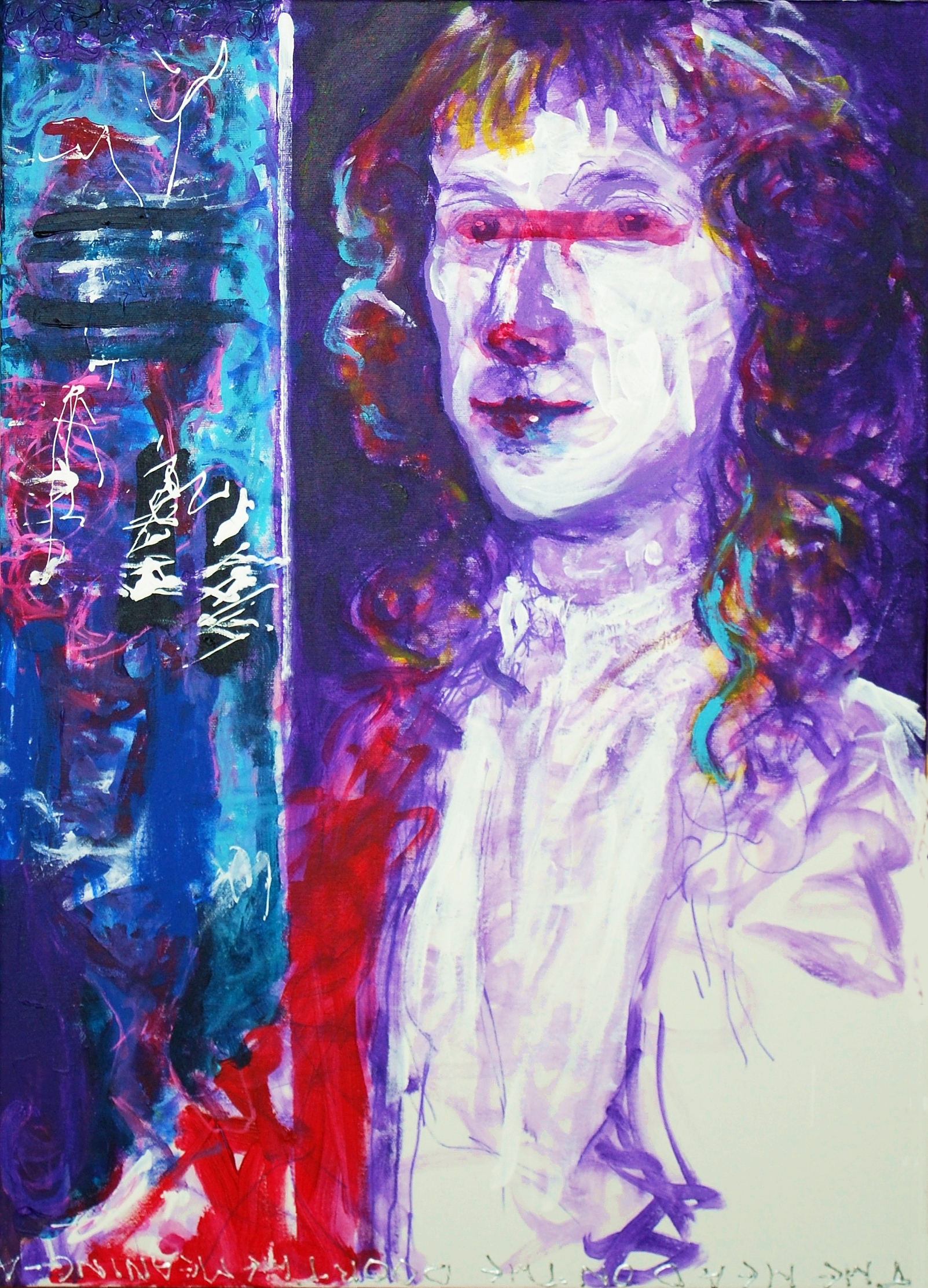
What role does arts funding have?
Arts funding plays a multifaceted role in society. It preserves cultural heritage, stimulates economic growth, enhances education, and promotes social cohesion. By investing in the arts, governments, organizations, foundations, and individuals contribute to the overall well-being of society by fostering creativity, cultural expression, and a vibrant artistic ecosystem.
What is your dream project?
My dream is to intervene with my paintings in a Spanish Romanesque church without making changes or modifications to the existing structure, design, or characteristics of the church; but at the same time, I want to create a lively and controversial atmosphere although following principles to ensure the preservation of its authenticity and historical value, and adapting it to modern needs while safeguarding the cultural heritage so that my art would last for centuries to come in a dialogue with the past.
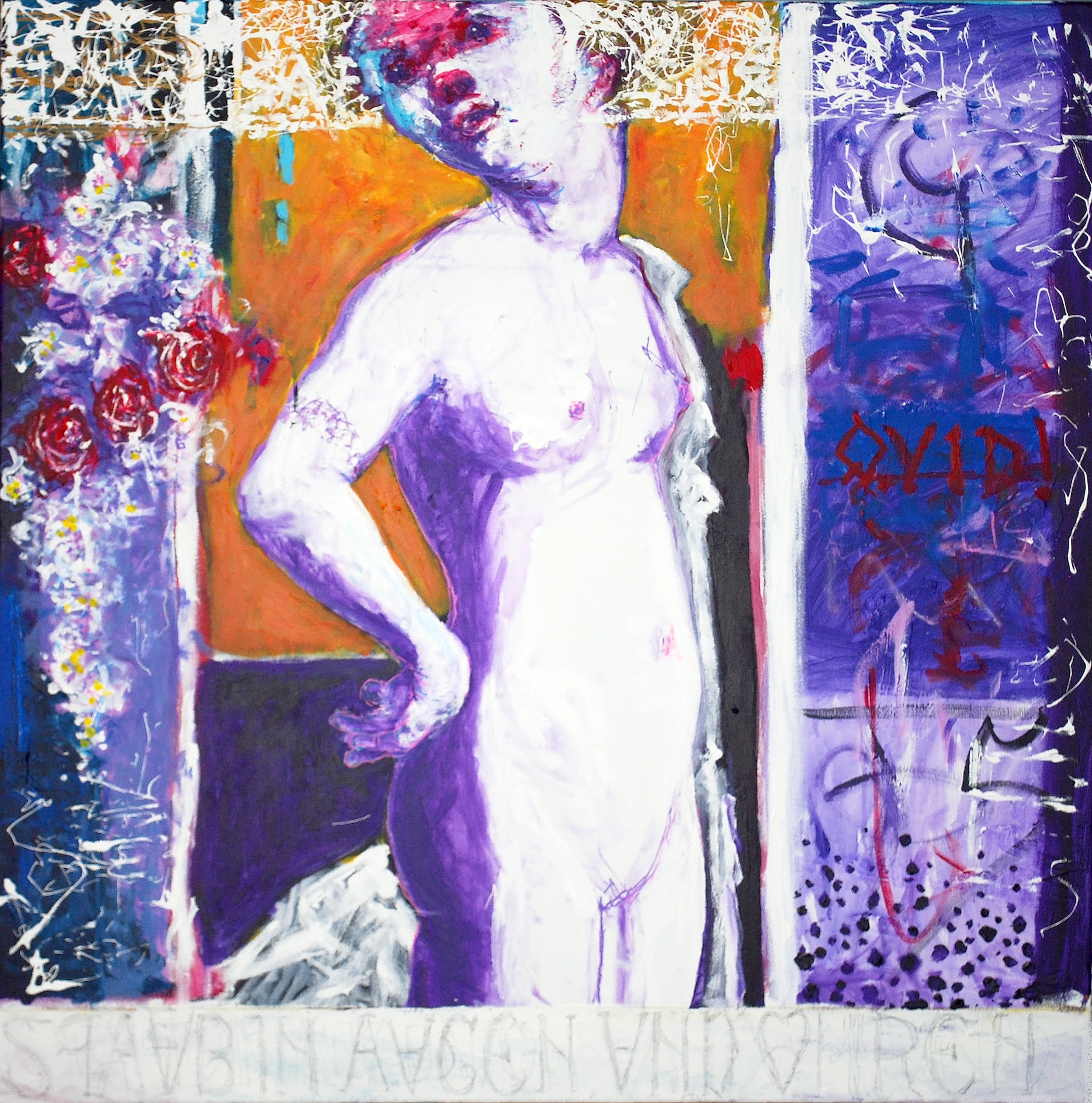
Name three artists you’d like to be compared to.
Julian Schnabel, Gustave Courbet, Henry Matisse.
Favourite or most inspirational place ?
Prague! I think it’s one of the most beautiful and enchanting cities in Europe. The city is a beautiful combination of Baroque, Gothic and Romanesque buildings, which together make the old town a magnificent labyrinth of small streets; this city brings you under its spell and that magic grows inside of you until you just want to experience it again and again.
What’s the best piece of advice you’ve been given?
The best piece of advice I have been given is to prioritize personal growth and continuous learning. This advice promotes a mindset of curiosity, adaptability, and resilience. By embracing new experiences, seeking out mentors, and viewing failures as opportunities for growth, individuals can unlock their full potential and lead fulfilling lives (I must have heard it somewhere).
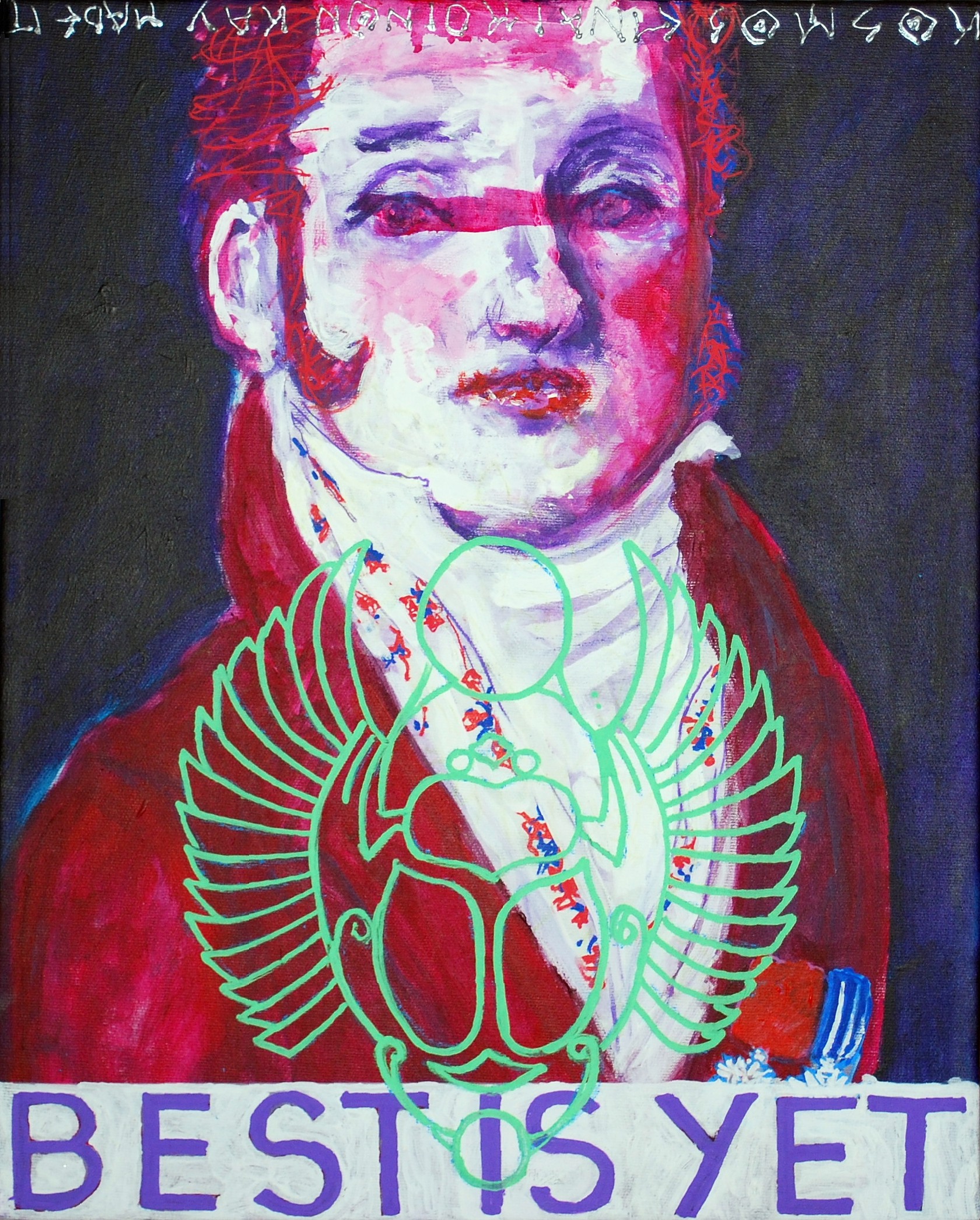
Professionally, what’s your goal?
Self-expression and self-actualization are my primary goals, and I want to express myself creatively and authentically through my artwork. I want to convey my thoughts, feelings, ideas and experiences in a unique way. In this way, I seek personal fulfillment and a sense of accomplishment. Recognition and affirmation, professional development, financial stability and sustainability, thus contributing to the cultural and artistic landscape.
Future plans?
Further artistic development: I’d like to experiment with different styles, subjects, or materials. Participation in art fairs and festivals. I’m also seeking opportunities to collaborate with other artists, musicians, writers, or performers. Collaborative projects can lead to the exploration of new ideas and the creation of interdisciplinary artworks. Public art and commissions. I’d like to get involved in community-based art projects.


